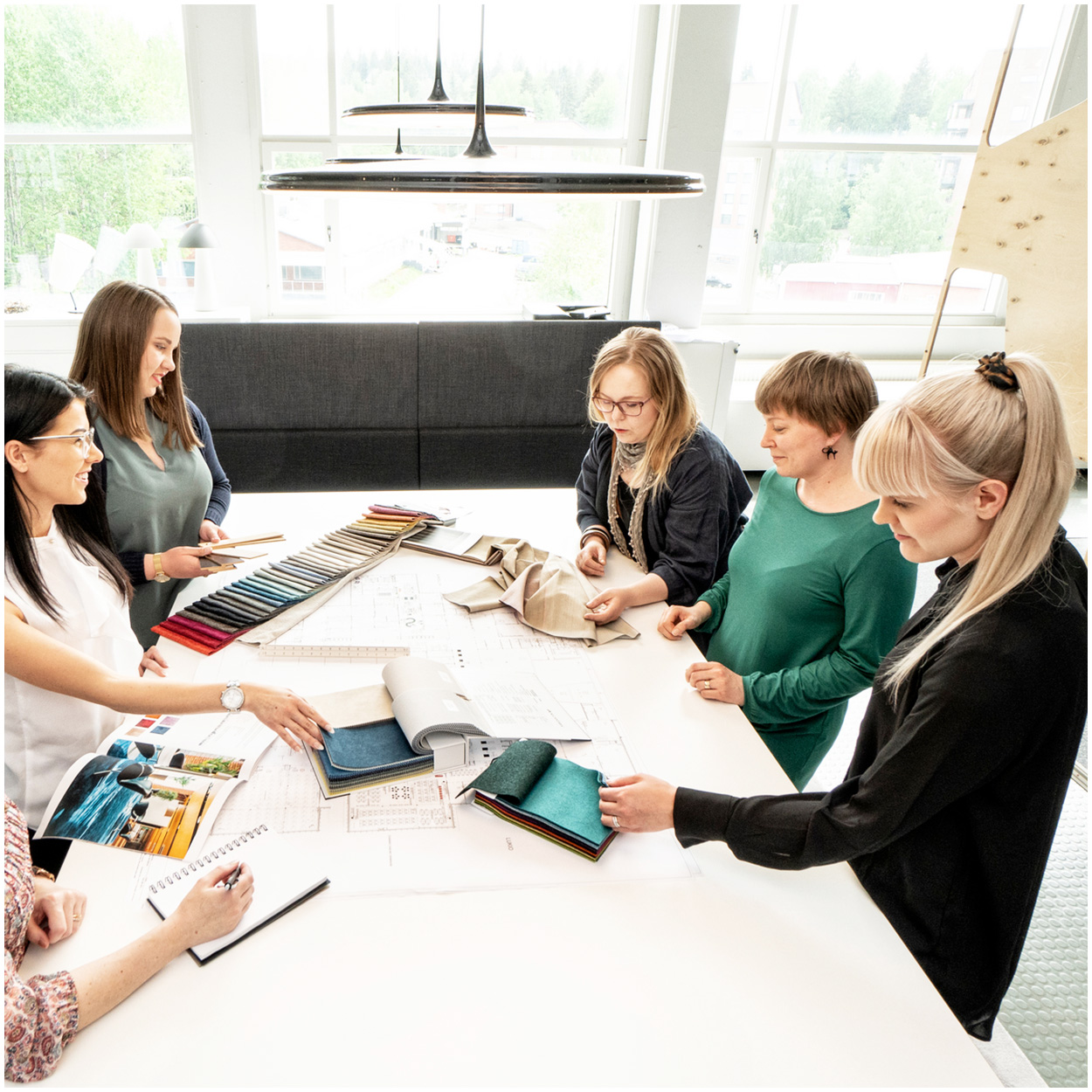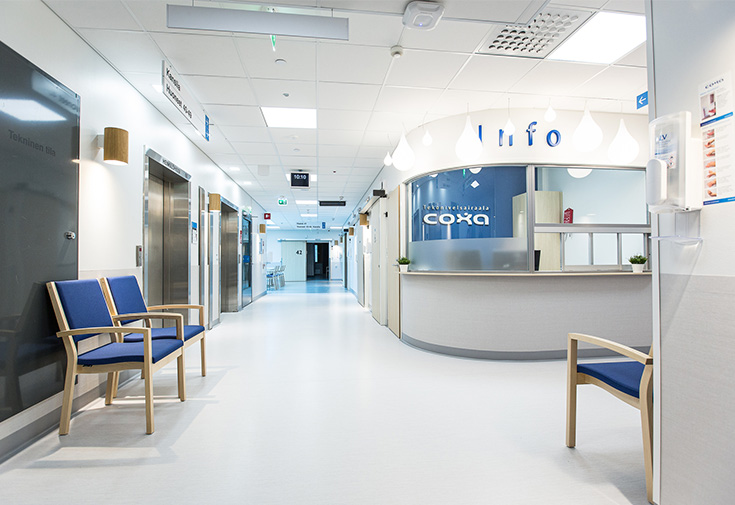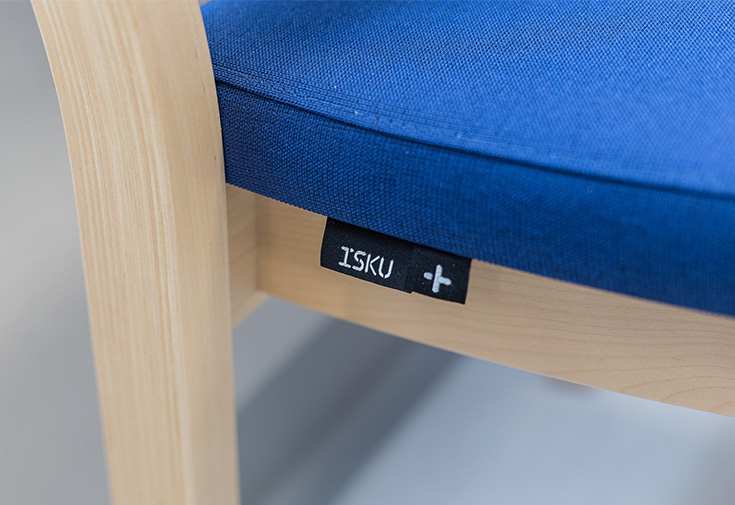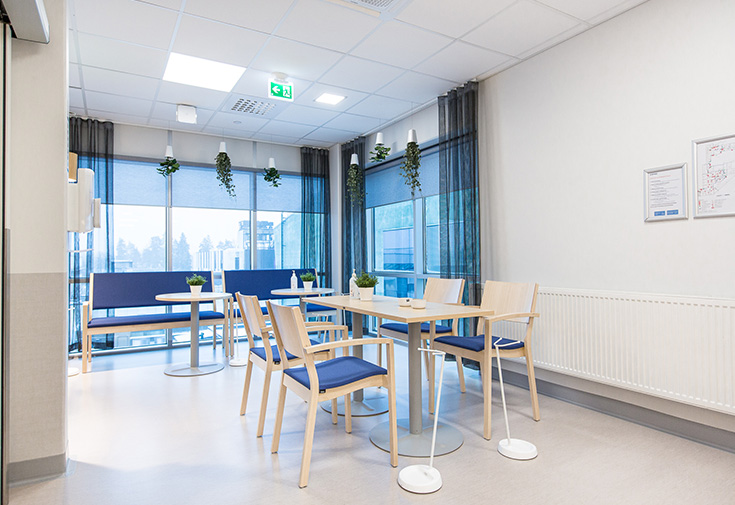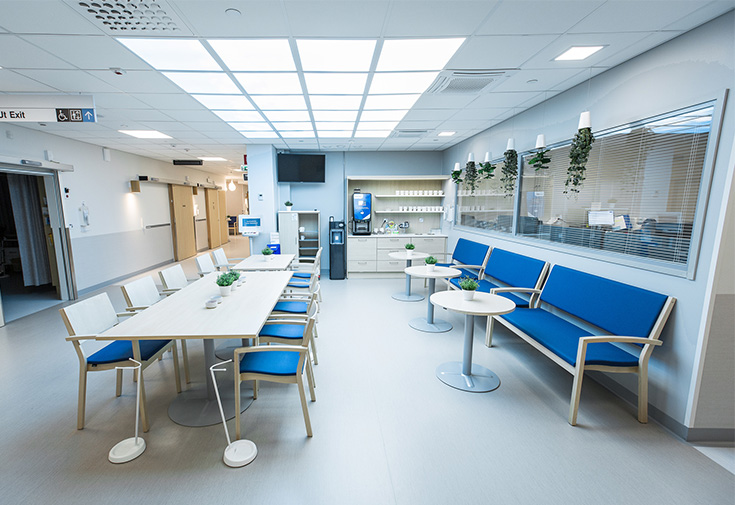
Coxa’s antimicrobial ward is the future of hospital facilities
At the new ward of the Coxa Hospital for Joint Replacement, almost all contact surfaces from beds, handles and cubicle curtains to wall paints are coated or treated with antimicrobial technology that kills bacteria and viruses. The holistic antimicrobial solution for the new ward was provided in close collaboration between Coxa and the HygTech Alliance including ISKU supplying the antimicrobial furniture to the ward.
“The purpose of the surfaces is to prevent infections transmitted via contact. The need for contact itself is minimized, for example, with doors that are open during the day and with touch-free toilet seats and hand towel dispensers”, says Marjo Uusitalo, Coxa’s Development Manager.
In Coxa, the efficacy of antimicrobial surfaces on the incidence of morbidity of patients and workers will be seen at the end of a certain follow-up period when the results can be compared between different wards.
The MRSA bacterium is destroyed in 20 minutes but the surfaces are harmless to humans
Antimicrobial furniture destroys bacteria throughout its life.
“Under controlled laboratory conditions for example the E. coli and MRSA are eliminated on the antimicrobial surface in less than 20 minutes. In the real world, the situation is different as conditions vary”, says Kari Soljamo, PhD, who has studied antimicrobial materials for several years and works as the development manager of ISKU.
Only tiny amount of silver is needed to achieve antimicrobial features – for example, on the table surface only the same amount as in one printed photograph.
“Antimicrobial products are safe for the user. In an ongoing study, a silver-containing antimicrobial laminate surface was extracted with artificial sweat for up to 168 hours”, Soljamo states.
The transition from silver to sweat was a thousandth of the amount that a 60 kg person can safely get from food on a daily basis. Traditional infection inhibitors, regular cleaning and good hand hygiene, are still important. Utilizing antimicrobial solutions is a new additional way of preventing infections.
The efficacy is widely demonstrated
The efficacy of antimicrobial silver and copper surfaces has been widely demonstrated. Research results on the effects on morbidity have also been obtained in recent years.
In 2013, a 21-month study of 16 rooms in intensive care units at three hospitals in the United States showed that patients in intensive care rooms with essential contact surfaces coated with antimicrobial copper experienced 58 percent fewer hospital acquired infections than patients in control rooms.
In 2018, the efficacy and impact of antimicrobial surfaces were studied at Taatila School in Lieto, “Case Study: Antimicrobial vs. Non-antimicrobial Class Room” furbished by ISKU. In Anni Hyvönen’s living lab case study on antimicrobial surfaces for the laboratory analysis department of Metropolia University of Applied Sciences, all furniture and contact surfaces in one class were changed to antimicrobial.
The comparison was made to non-antimicrobial, otherwise identical class, which was cleaned and utilized in the same manner as the antimicrobial class.
“Pupils who studied in the antimicrobial class had 52 per cent fewer short-term absences during the 113 school days studied than in the comparison class. Prior to the comparison, long-term sick leaves and accidents were extracted from the statistics”, says Soljamo, who supervised the study.
The same study showed that the total number of bacteria did not correlate with ATP measurements. ATP measurement is used e.g. in hospital environments for assessing the quality of cleaning.
Read more about ISKU+ Antimicrobial technology.
A joint project of the HygTech Alliance
Abloy, ISKU, Korpinen, Lojer, Oras and Teknos, Finnish manufacturers of antimicrobial furniture and materials, participated in the implementation of the “Finland’s most antimicrobial” ward, and the HygTech Alliance takes Finnish expertise in antimicrobial facilities abroad. A number of other companies were also involved, such as Fabrica, which manufactures antimicrobial curtains.

